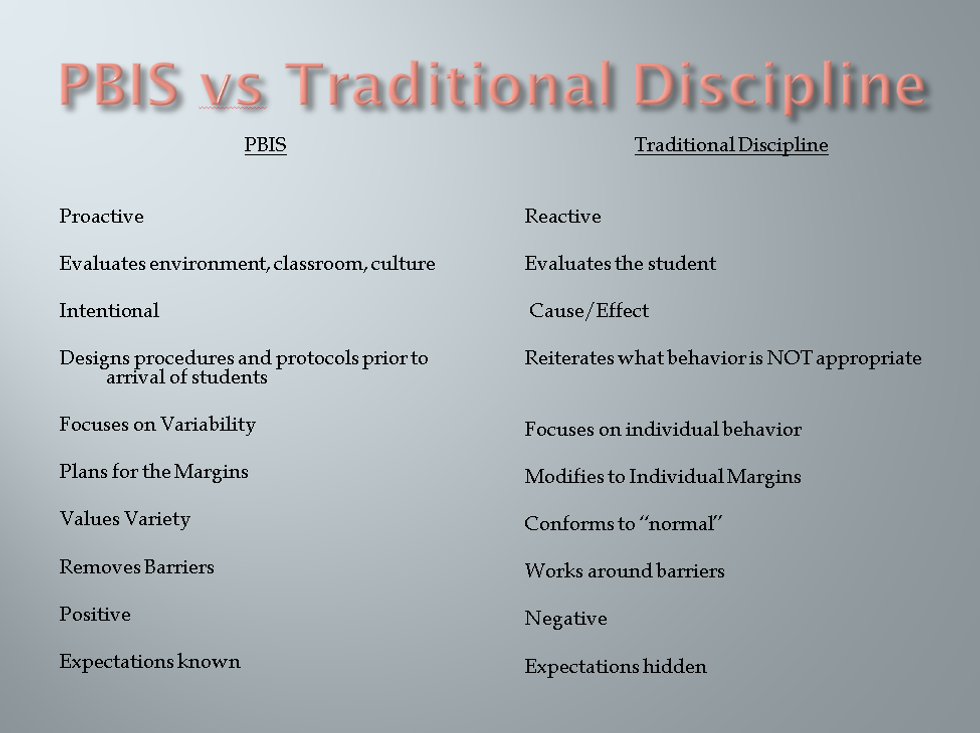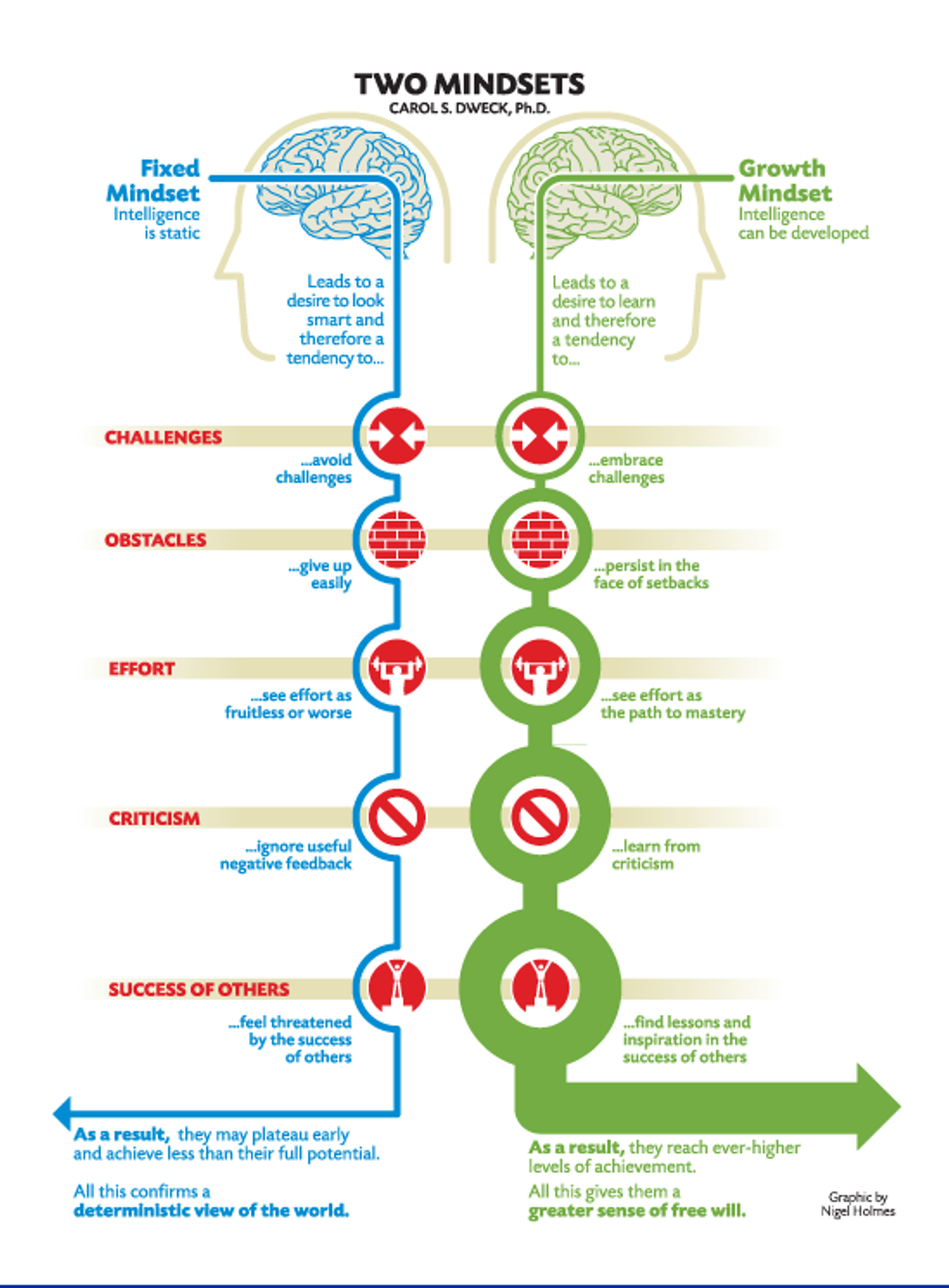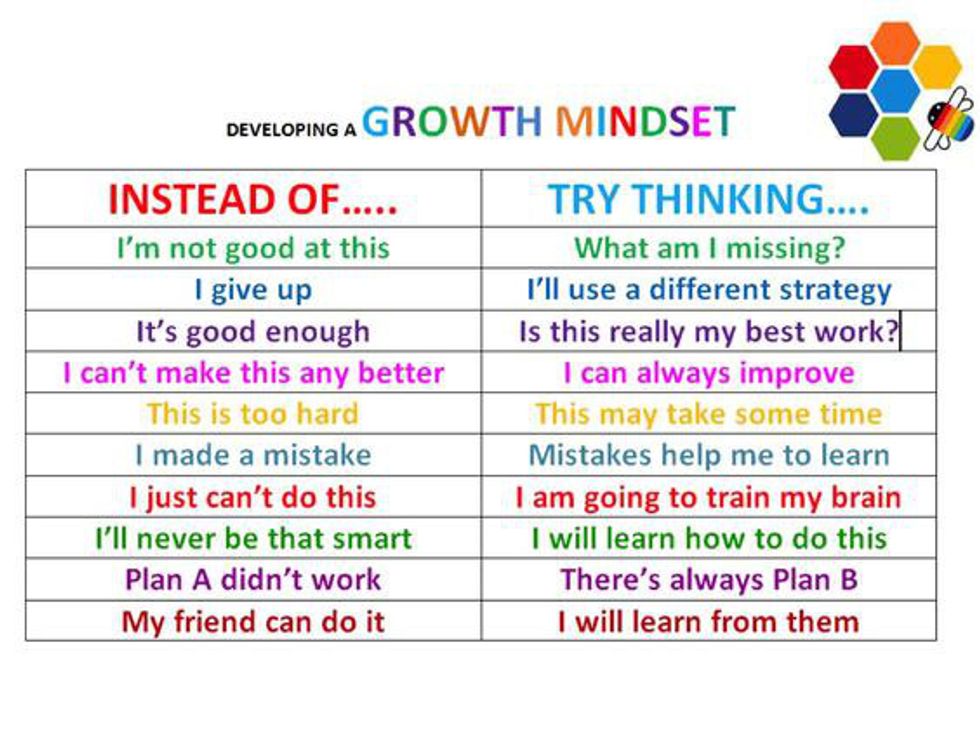"The Measure of Intelligence is the Ability to Change." -Albert Einstein
Much has come to light in our recent past about the brain and learning. Over the course of the past several decades of the educational landscape of vocabulary several schools of thought have risen out of our new and better understanding of the brain and how it relates to learning: culturally responsive, culturally relevant, reality pedagogy, funds of knowledge, growth mindset, positive behavior instructional supports, variability, context, illusionary average, learning sciences, neuroscience of learning, universal design for learning...and the list can go on!
So what does this all have to do with "Ending The Student Deficit Paradigm"? Student deficit paradigms blame students and/or parents for failure or lack of success in school. Moving the focus to the brain, modern neuroscience, researched based practices, and the learning sciences empowers educators to begin to utilize frameworks, strategies, research, and understanding in a way that leverages students' strengths versus blaming students' weaknesses. It likewise empowers educators to be proactive agents of change by challenging old dogmatic schools of thoughts and replacing them with beliefs grounded in research, neuroscience and most importantly by focusing on ourselves and the learning environment. What we have most control over anyway!
For our purposes we are going to focus acutely on a few big game changers that I have personally found paramount to change. As both a classroom teacher and coordinator of UDL (Universal Design for Learning), I have witnessed monumental change in how teaching and learning is taking place.
1) Universal Design for Learning (UDL)
What: Universal Design for Learning emerged out of research done by Dr. David Rose and his colleagues at CAST (The Center for Applied Special Technology) in the early 1990's. UDL is a framework based on research in the learning sciences. (See UDL 101: The Basics of Universal Design for Learning)
Why: Universal Design for Learning isn't just a framework it is a philosophy! It places the focus and burden for learning on the learning environment. It focuses on variability vs disability. It sees the curriculum as disabled and disability as contextual. It cuts straight through student deficit thinking by taking the focus off the student and placing the focus on barriers to learning in the environment.
How:
-UDL is a framework you employ to intentionally create an inclusive learning environment and experience that is accessible and conducive to learners.
-UDL is a framework to filter instruction to expose barriers and find deficiencies in the curriculum, pedagogy, and environment rather than focusing on the students deficiencies and challenges.
2) Positive Behavior Instructional Supports (PBIS)
What: Positive Behavior Instructional Supports (PBIS) is a systems based approach to proactive schoolwide management. During the 1980's, the University of Oregon began research and evaluation projects which indicated a greater focus needed to be placed on prevention, research based practices, data-based decision making, school-wide systems, explicit social skills instruction, team-based planning, professional development, and student outcomes (Sugai & Simonen 2012).
Why: PBIS focuses on the environment. It places the burden on the system. PBIS enables students to have positive associations with the learning environment, the teacher, fellow students, and greater access to collaborative relationships. PBIS cuts straight through student deficit thinking by shifting the blame for behavior off the student and placing the burden for expectations and behavior on the system and the environment.
How: It looks at expectations as needing to be taught, modeled, reinforced, and revisited as needed. It is proactive. Students are empowered to to help set expectations, policies, and activities.
3) Growth Mindset
What: Growth Mindset is: The Belief that with practice, perseverance, and effort, people have limitless potential to learn and grow. People operating in the growth mindset tackle challenges with aplomb, unconcerned with making mistakes or being embarrassed, focusing instead on the process of growth (Dweck p. 16). On the other hand, a fixed-mindset is: the belief that we're born with a fixed amount of intelligence and ability. People operating in the fixed mindset are prone to avoiding challenges and failures, thereby robbing themselves of a life rich in experience and learning (Dweck pgs. 15-16).
Why: A growth mindset to learning and living cuts straight through the fatalistic thinking behind student deficit models. It removes what is perceived to be brought by the student from genetics, homelife, static ability, and the like into the learning environment and dispels them from limiting learning possibilities.
How: First and foremost adding growth mindset statements to the learning culture and the vernacular of learning is a great place to start.
Second, teaching students about their brains. Teaching students about brain plasticity. This not only debunks the misconceptions about the brain but is answers the question of why learning brain science not only matters, but can and should matter to students. What better way to empower young minds than to teach them that their brains are not some fatalistic set static organs with limited potential.
4) Ending Averagarianism
What: Using averages to understand individuals is not a new concept, it was born out of the industrial revolution. How did we get to this "one-size-fits-all" standardized system of education? As many know, the industrial revolution and subsequent assembly line and culture of standardization in America paved the way. Sadly, "by 1920, most American schools were organized according to the Taylorist vision of education, treating each student as an average student and aiming to provide each one with the same standardized education, regardless of their background, abilities, or interest" (Rose p. 51).
Why: Modern neuroscience now reveals there is no such thing as an average brain (Rose p.20), therefore there is no average student. Rose purports that we cannot understand the needs of individual students by comparing them to a non existent average student. The reality is student deficit is not the problem, our mindset and a system's deficit is!
How: By rejecting averagarianistic attitudes that try to box students into illusionary average boxes "we need tools to understand each person as an individual, not as a data point on a bell curve (Rose p.14). This begins by employing modern neuroscience and the framework for understanding the learning sciences through UDL.
What Now:
From here we must continue to challenge our misconceptions about what teaching and learning is. We must employ what we are learning about our brains, the learning sciences, and modern neuroscience to dismantle student deficit paradigms. And never forget to ask "Why?" by challenging the status quo!
“I did then what I knew how to do. Now that I know better, I do better.”
― Maya Angelou
Dweck, Carol. (2006) Mindset: The New Psychology of Success. New York: Ballantine Books.
Rose, Todd. (2015) The End of Average. New York, NY: HarperOne.
Sugai, George & Brandi Simonsen. University of Connecticut. Center for PBIS. Positive Behavioral Interventions and Supports: History, Defining Features, and Misconceptions. 2008: Print. Retrieved from: www.pbis.org/common/cms/files/pbisresources/PBIS_revisited_June19r_2012.pdf
























